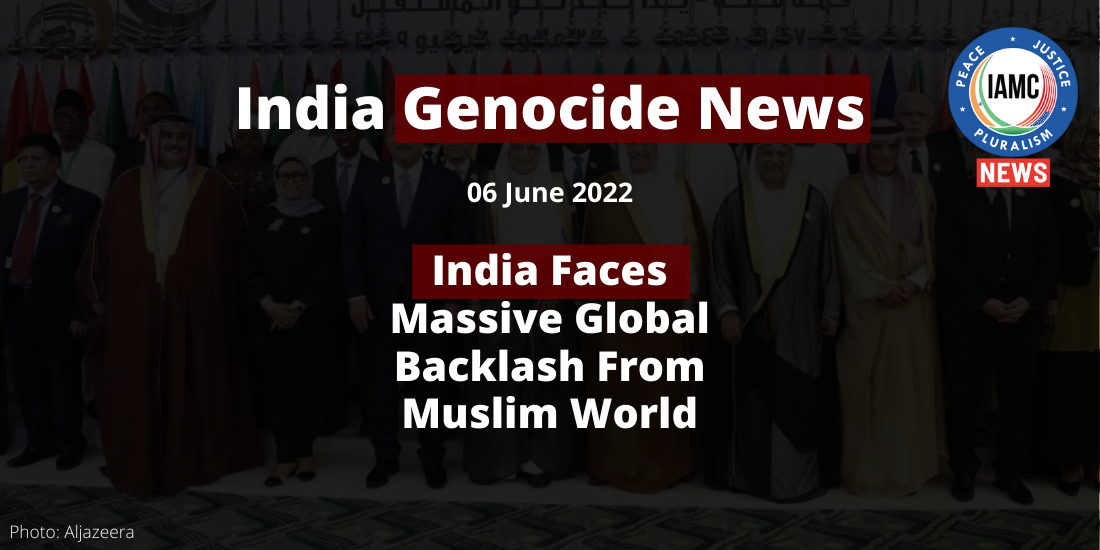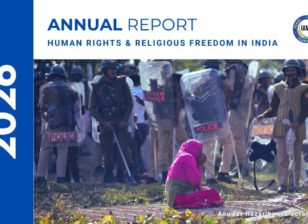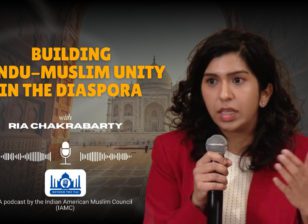Organization of Islamic Cooperation ‘Strongly Condemns’ Denigration of Prophet Muhammad (PBUH) by India Ruling Party’s Official; Asks UN, HRC To Intervene
Ever since two officials of India’s Hindu supremacist ruling Bharatiya Janata Party (BJP) denigrated Prophet Muhammad (PBUH) publicly last week, the Indian government has faced a barrage of condemnation from across the Muslim world. On Monday, the General Secretariat of the Organization of Islamic Cooperation “strongly condemned and denounced” the denigration of Prophet Muhammad.
“These cases of defamation are part of a growing spate of hatred and defamation of Islam in India and systematic practices against Indian Muslims, particularly in light of a set of decisions to prohibit the use of hijab in educational institutions in some Indian states, including demolition of Muslims’ properties and growing violence against them,” a statement from the OIC said.
The OIC called on the Indian authorities to “decisively address these incidents of defamation and all forms of insult to the noble Prophet and Islam and to bring those who incite and perpetrate violence against Muslims to justice and hold those behind them accountable.” It also calls on the Indian authorities to “ensure the safety, security and well-being Muslims in India and protect their rights as well as religious and cultural identity, dignity and places of worship.”
The General Secretariat also called on the international community, in particular, the United Nations mechanisms and the Human Rights Council’s special measures, to take “necessary measures to challenge practices targeting Muslims in India.”
The Indian government, however, slammed the OIC for its comments.
Governments Across Muslim World Join To Condemn Remarks Against Prophet Muhammad (PBUH) By India’s Ruling Party Leaders
The governments of a number of Muslim countries including the UAE, Oman, Bahrain and Jordan joined the chorus of denunciation that has already seen condemnation from countries such as Qatar, Kuwait and Iran.
On Monday, Indonesia, the world’s largest Muslim country, also summoned the Indian ambassador and condemned the remarks. Maldives and Egypt, too, condemned the statements.
Saudi Arabia, Jordan, Libya, Afghanistan, Indonesia, and Pakistan too joined in openly condemning the remarks against the Prophet.
Expressing its “denunciation and rejection of insults of the Prophet”, the UAE Ministry of Foreign Affairs and International Cooperation (MoFAIC), in a statement, “affirmed the UAE’s firm rejection of all practices and behaviors that contradict moral and human values and principles.” It “underscored the need to respect religious symbols and not violate them, as well as confront hate speech and violence.”
The UAE is India’s third largest trading partner — the second largest importer and exporter last year — and home to over three million non-resident Indians (NRIs.)
Indonesia “strongly” condemned the “unacceptable derogatory remarks” by “two Indian politicians”. It said it had conveyed the message to the Indian ambassador in Jakarta.
The Maldives, where India has considerable influence, said it “unreservedly condemns all and any action that purports to pervert the true nature and teachings of Islam” and “attempts to demean” the Prophet. The Maldives government said it is “deeply concerned by the derogatory remarks made by some officials of BJP” but welcomed the “denouncement” by the Indian government of the remarks and the “prompt action taken by BJP against those officials.”
Indian spokesman Arindam Bagchi said the Indian government “accords the highest respect to all religions,” and that the “offensive tweets and comments denigrating a religious personality were made by certain individuals. They do not, in any manner, reflect the views of the Government of India. Strong action has already been taken against these individuals by relevant bodies.”
Criticism also came from the Taliban-ruled Afghanistan, which said the “Islamic Emirate of Afghanistan strongly condemns the use of derogatory words against the Prophet of Islam (Peace be upon him) by an official of the ruling party in India” and urged “the Indian government not to allow such fanatics to insult the holy religion of Islam and provoke the feelings of Muslims.”
Kuwait Store Removes Indian Products After ‘Islamophobic’ Remark Against Prophet Muhammad (PBUH)
A store in Kuwait has removed Indian products to punish the country for its failure to act against the BJP’s Nupur Sharma and Navin Jindal for denigrating Islam’s Prophet.
In a video, posted by the Arab News, workers of Al Ardiya Co operative Society, a superstore in Kuwait City are seen bringing down Indian teas and other products from their shelves and denouncing the remarks as “Islamophobic.”
“We boycotted Indian products because of insults to the Prophet. We, as Kuwaiti Muslim people do not accept insulting the prophet, ” Nasser Al-Mutairi, CEO of the superstore said.
There have also been several calls for the boycott of Indian products in many parts of the Gulf region, and hashtags critical of the Indian government and Prime Minister Narendra Modi were top trends across social media in many countries.
This comes after Qatar, Kuwait and Iran – three nations with which India has had close ties for decades in the Gulf region – summoned Indian ambassadors to their countries to register their protest against the derogatory comments on Prophet Mohammad made by Sharma and Jindal last week. It came at a time when Vice President M Venkaiah Naidu was in Qatar for a three-day official visit.
On Sunday, the BJP had suspended spokesperson Nupur Sharma and expelled expelled its Delhi media head Naveen Kumar Jindal, as over the weekend there was a growing chorus of criticism from the Arab world against their comments.
The historical Al-Azhar mosque in Egypt also condemned the comments against the Prophet. “While what this ignorant and reckless man said is a ridiculous statement that every hater of Islam and Muslims repeats from time to time, he affirms at the same time that such behaviour is the real ‘terrorism’ itself, which can be the entire world is plunged into deadly crises and wars, and hence the international community must confront firmly, valiantly and forcefully to stop the dangers of these abusers,” said Al-Azhar.
Very Tough Time Ahead As Hatred Is Increasing And History Is Being Distorted: Justice Abhay Thipsay
India faces “a very tough time ahead as hatred is increasing and history is being distorted,” said Justice Abhay Mahadeo Thipsay, ex judge of Mumbai High Court, in Lucknow. “If things continue like this, after 20 years the next generation will believe that Taj Mahal was Tejo Mahal. This is a very dangerous trend.”
Addressing a meeting of All India Lawyers Council (AILC), Justice Thipsay said a narrative was being set that the Hindus had been oppressed and persecuted in centuries past. “This narrative is being set to punish certain people to justify their crime.”
He further said that “some people can get some political benefits, but they are immensely damaging the country and society.”




